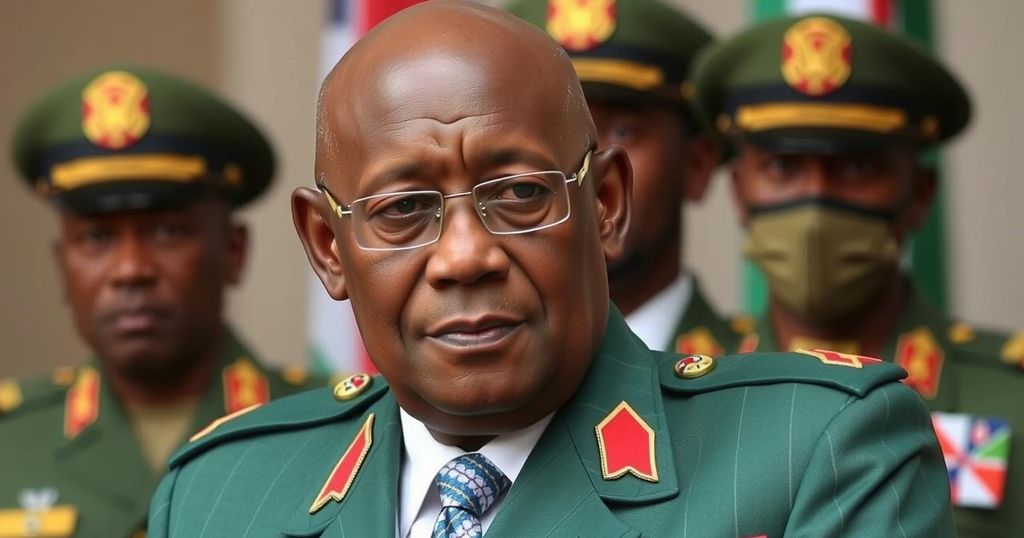Leadership Shake-Up in South Sudan: Kiir Dismisses Army Chief and Central Bank Governor

South Sudan’s President Salva Kiir has made significant leadership changes, dismissing army chief Gen. Santino Deng Wol and Central Bank governor James Alic Garang Alic. He appointed Gen. Paul Nang Majok as the new army chief, replacing him, and reappointed Johnny Ohisa Damian as the new Bank governor. These changes come amidst concerns following a violent shootout at the home of a former intelligence chief.
On December 9, 2024, South Sudan’s President Salva Kiir announced several significant appointments and dismissals in the military and financial sectors. General Santino Deng Wol was relieved of his duties as the army chief of staff and was succeeded by General Paul Nang Majok. Likewise, James Alic Garang Alic was removed as governor of the Bank of South Sudan, with Johnny Ohisa Damian appointed to the post. In other notable changes, General Abraham Peter Manyuat became the new Inspector General of the South Sudan Police Service, taking over from General Atem Marol Biar. Additionally, Garang Majak was dismissed as the first undersecretary of the Ministry of Finance and was replaced by Arop Nuoi Arop. The president’s decrees, broadcasted on the state-owned television, SSBC, did not clarify the motivations behind these changes in leadership. These developments follow last month’s tragic shootout at the residence of former intelligence director General Akol Koor Kuc, which resulted in casualties and injuries, leading to speculation about possible links to these recent personnel changes.
This article discusses the pivotal leadership changes instituted by South Sudanese President Salva Kiir, highlighting the dismissals and appointments of key military and banking officials within the government. These changes occur against a backdrop of security concerns following a violent incident involving the former intelligence director’s residence, raising questions about the stability of the nation’s political climate and the effectiveness of its leadership amid ongoing challenges in South Sudan’s governance.
In summary, President Salva Kiir’s recent decisions to replace high-ranking military and banking officials appear to reflect attempts to address ongoing security concerns within South Sudan. While the motivations for these changes remain unexplained, they come on the heels of a violent incident that has drawn attention to the need for reform and improved oversight within the country’s institutions, hinting at a critical juncture in South Sudan’s governance.
Original Source: sudantribune.com








